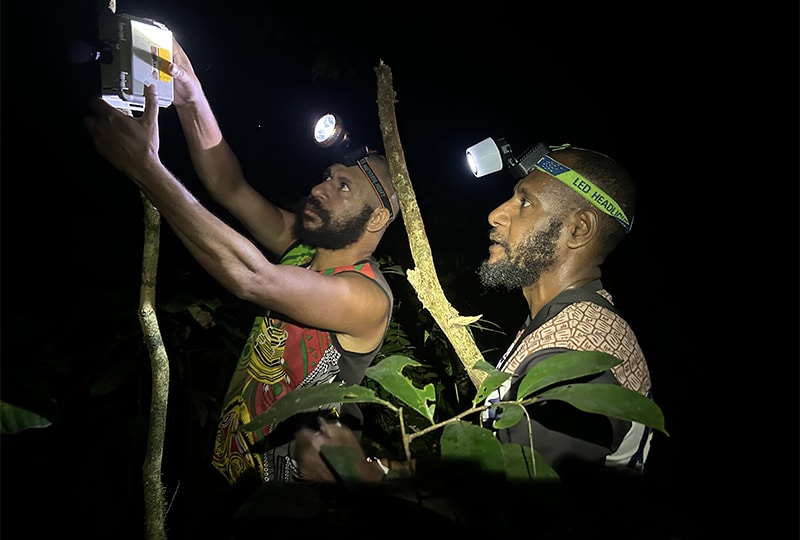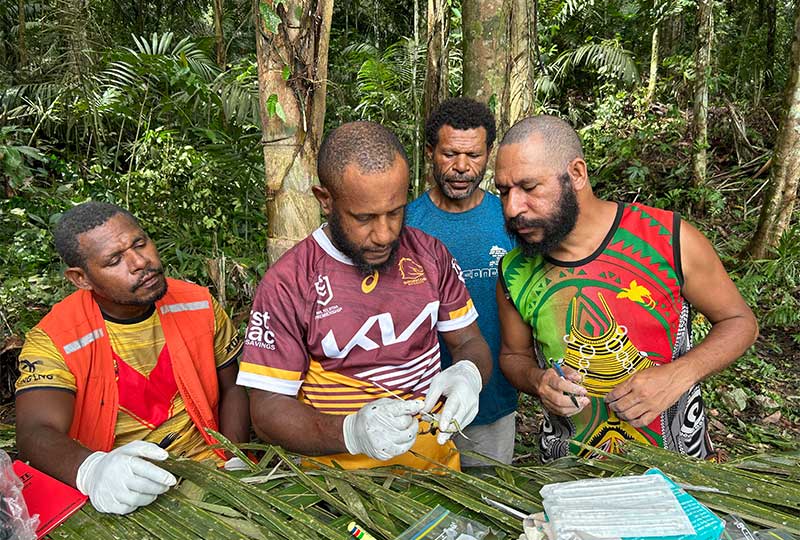At a glance

New Guinea Binatang Research Centre (BRC)
BRC combines local expertise with academic research on biodiversity to bring together a rich understanding of subjects such as the complex food webs in Papua New Guinea’s forests, canopy science, and vegetation dynamics.
BRC actively monitors a 50 hectare plot with more than 250,000 trees and 576 species with ForestGEO in the largest research plot of its kind in the Pacific, not only providing valuable insights into local ecology but an essential training site for local scientists. BRC also operate a canopy crane in the Madang Province which gives scientists access to tree crowns for research observations and experiments. BRC also runs eight research stations at different elevations from 200-3,700m above sea level along 41 kilometres on Mount Wilhelm.
Through their research to date, BRC have identified a knowledge gap on Papua New Guinea’s extensive amphibian diversity. More than 330 species of frogs have been recorded, and many of them cannot be found anywhere else in the world, with another 150 species known but not yet described to science, and many more await discovery in the most remote regions. This lack of understanding makes it hard to identify priorities for the country’s amphibian conservation efforts, so BRC have developed further research projects and are training personnel in amphibian survey techniques.

BRC team swabbing frog for chytrid fungus. Image: © Huon P/SJR
As well as providing important research, a key aim for BRC is to build local expertise in biodiversity, which is especially important in Papua New Guinea where decisions about the environment are often made by local community landowners. BRC therefore runs training programmes for Indigenous paraecologists and conservation rangers; primary and secondary schools; undergraduate and postgraduate university students; and young professionals.
Further to this, BRC also engages local farmers and communities in conversations about sustainable practices and assists with primary school education and healthcare to bring livelihood improvements that relate to conservation.

